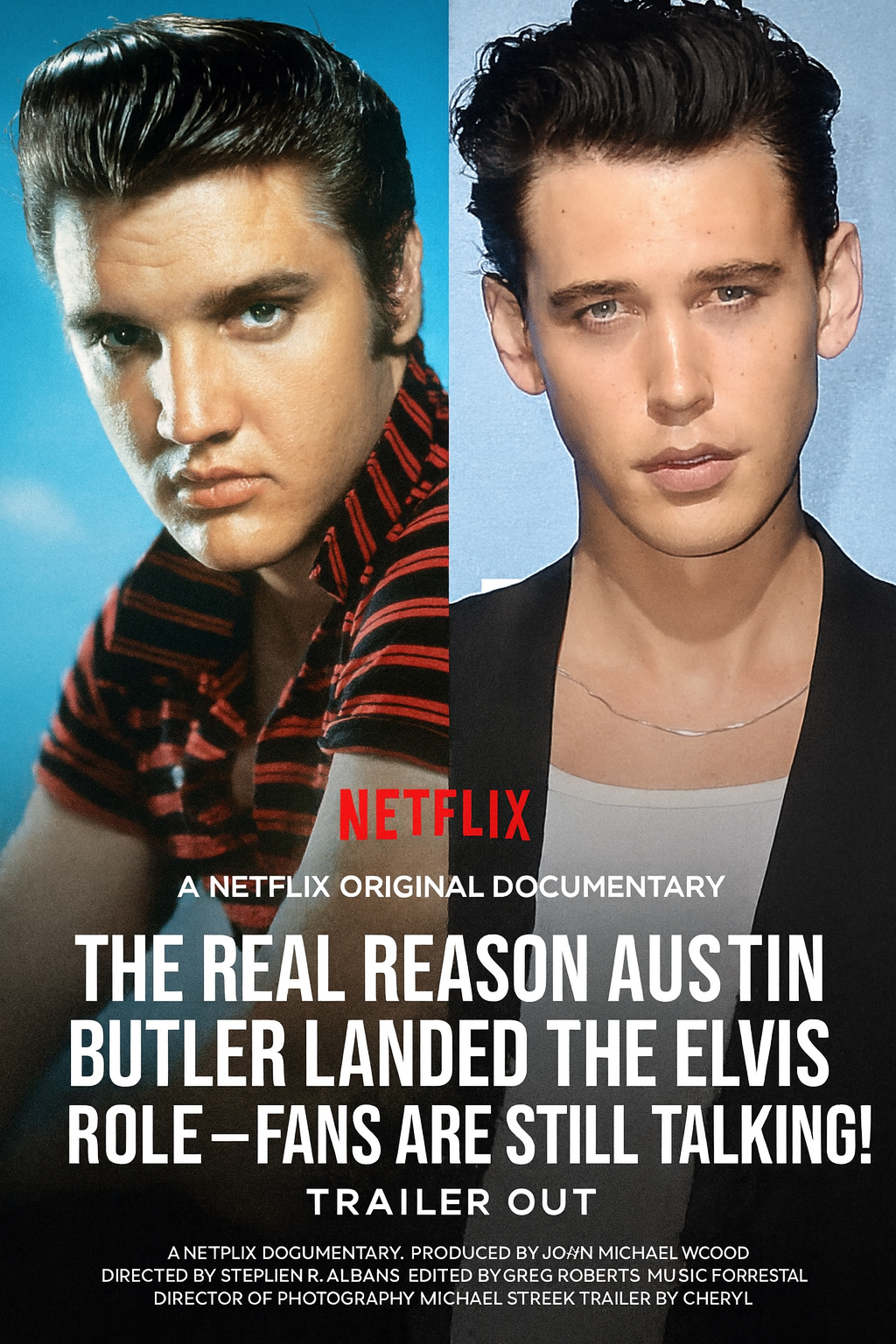
Austin Butler’s casting as Elvis Presley in the 2022 biographical film Elvis wasn’t just a bold choice—it became one of the most defining performances of the decade. When director Baz Luhrmann first announced the project, many wondered who could possibly step into the shoes of a cultural giant whose voice, moves, and charisma shaped generations. Yet Butler, who had been steadily but quietly building a career, emerged as the unexpected but perfect choice, capturing not only the look and sound of Elvis but also the emotional complexity behind the legend.
Butler’s audition process has already become the stuff of Hollywood lore. Rather than simply sending a polished tape, he recorded himself singing “Unchained Melody” through tears at 3 a.m., channeling a raw vulnerability that immediately caught Luhrmann’s attention. This emotional honesty, paired with Butler’s dedication, convinced the director that he wasn’t looking at someone pretending to be Elvis—he was looking at someone who could embody him. That conviction set the tone for the entire production.
Another major reason Butler landed the role was his unmatched commitment to preparation. He didn’t just study Elvis; he lived him. Butler worked with vocal coaches, movement experts, and dialect specialists for months before filming started. He reportedly kept Elvis’s voice, posture, and mannerisms alive even off-set, creating an immersive method-acting environment that made it easier for him to naturally transition into character when the cameras rolled. This level of devotion set him apart from other contenders.
Luhrmann himself has said that he wasn’t looking for an Elvis impersonator but a storyteller—someone who could communicate the humanity behind the icon. Butler’s ability to portray both the explosive stage presence and the private, vulnerable inner life of Elvis Presley convinced the director that he had found that storyteller. His performance needed to transcend mimicry, and Butler’s sensitive, emotional approach provided the depth the film demanded.
Critics later praised Butler for doing what had once seemed impossible: presenting Elvis as both myth and man. Rather than focusing solely on the glitz of the superstar era, the film dug into the pain, pressure, love, and ambition that defined Presley’s journey. Butler’s performance captured this duality through subtle facial expressions, emotional pauses, and nuanced vocal control. His work became less about recreating history and more about re-experiencing it through fresh eyes.
By June 24, 2022, when Elvis officially released, audiences were stunned by just how thoroughly Butler had disappeared into the role. His voice, movement, and emotional range struck a balance between authenticity and personal interpretation that resonated with longtime Elvis fans and new viewers alike. The date marked not only the debut of the film but also the arrival of Butler as a major Hollywood force.
In the months that followed, the cultural impact of Butler’s performance became undeniable. Award shows, critics’ circles, and fans repeatedly highlighted his transformation as one of the decade’s most impressive feats of biographical acting. He brought younger generations into the legacy of Elvis Presley, proving that the story of the King still had emotional relevance and cinematic power in the modern era.
Ultimately, Austin Butler played Elvis Presley in 2022 because he was the rare actor capable of bridging the gap between history and emotion. His dedication, raw talent, and deep respect for the man behind the music allowed him to honor Elvis without simply imitating him. It was a once-in-a-generation performance—one that redefined his career and reintroduced the world to an icon through a powerful, unforgettable lens.



